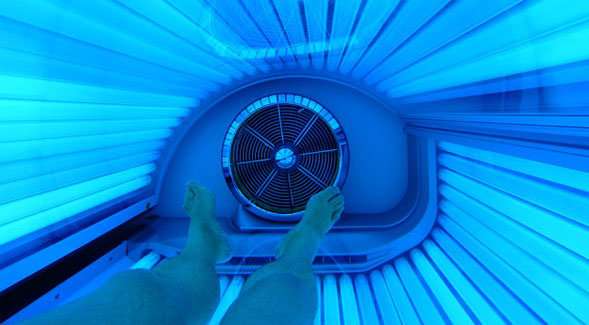Study sheds light on skin cancer risk behaviors

Ultraviolet (UV) light exposure through indoor and outdoor tanning is the leading environmental risk factor for developing skin cancer. Now, a new San Diego State University study explains how a new technology that shows future aging effects could lead people to engage in less risky tanning behavior.
One of the main reasons people tan is because they believe tanned skin is physically attractive. However, previous research reveals that individuals are less likely to tan if they are worried about the potential negative impacts of tanning—increased wrinkles, sun spots, and premature aging of the skin.
Hoping to build on these findings, Aaron Blashill, an assistant professor in SDSU's Department of Psychology, alongside his colleagues conducted a randomized controlled trial in which 219 participants, who were considered at risk for developing skin cancer, received one of three interventions: Viewing a novel facial morphing computer program that simulated how their older selves would look if they continued tanning or stopped tanning, as well as receiving health information; an alternative treatment focused on mindfulness plus health information; or health information alone. The researchers then followed the participants for one month following the intervention.
They found that participants who saw the facial morphing program reported tanning indoors 60 percent less frequently than their peers in the other two interventions.
"These results are important as they suggest that a brief 10-minute intervention focusing on appearance changes can substantially reduce indoor tanning among at-risk individuals," said Blashill. "It's possible that kiosks could be installed in physician waiting areas, and patients could use the facial morphing program while waiting to see their physician. There are also possible expansions with the use of mobile apps, which would allow people to see the future effects of tanning from the convenience of their smart phone."



















